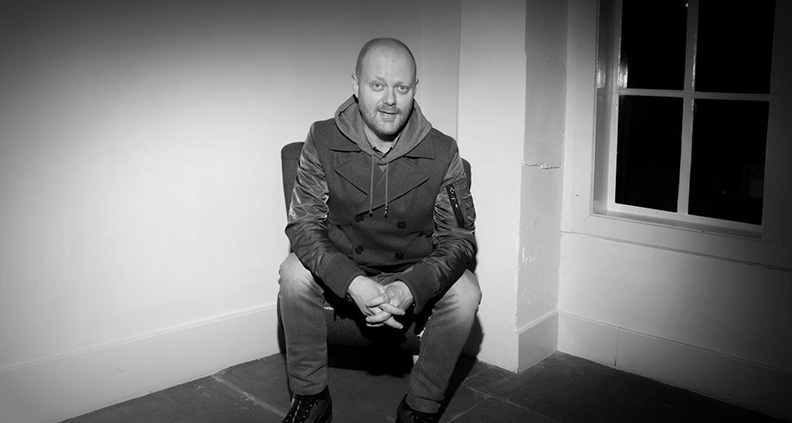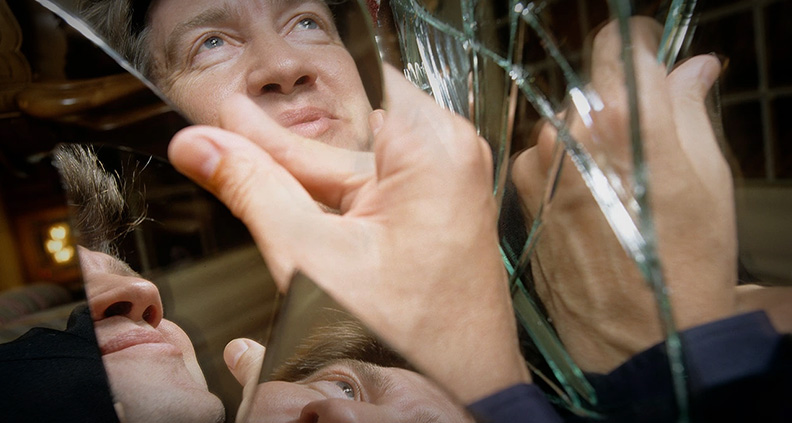The films themselves are often dark but always honest, their perversions expressive and earned rather than bluntly hammered. As we follow the cosmic tendrils of Lynch’s brain backwards toward their origin, it’s only natural to ask: why does this guy see the world the way he sees it? One answer may lay in Victor Fleming 1939 MGM classic, whose enchantments reach even further back, to its position as an early television staple for impressional baby boomers developing their imaginations and material predilections in the glow of the family’s suburban RCA console. That’s the supposition, at least, of Alexandre O. Philippe’s new project Lynch/Oz–now playing in theaters and on VOD. Having previously tackled cinematic subjects including the Star Wars prequels (The People vs. George Lucas), Psycho’s infamous shower scene (78/52) and the birth of the xenomorph (Memory: The Origins of Alien) this time enlists the voices and perspectives of a who’s-who of marquee movie thinkers to present, in chapters, their theses around the subject of David Lynch and The Wizard of Oz. We recently spoke to Philippe about working with his Lynch/Oz co-authors–Amy Nicholson, John Waters, Karyn Kusama, Rodney Ascher and Justin Benson & Aaron Moorehead–David Lynch, collective dreaming, film criticism and more.
ALEXANDRE O. PHILIPPE
I want to open up with a sort of larger question. Over the past couple of years I’ve realized that I don’t really read much film criticism anymore, but I still ingest a ton of it. Primarily in the form of podcasts and video essays. What are your thoughts about where film criticism is at the moment, with regard to traditional written criticism versus the sort of work you’re doing? Philippe: They’re completely different animals. I think the exercise of making a film about film, which is how I look at the films I make, they’re explorations into the mystery of cinema and the creative process. I don’t come from the academic world. I come from a dramatic writing background and a cinephile background. It’s extraordinarily important to me that the films I make are cinematic experiences in their own right, especially if I’m asking people to sit in a dark theater for two hours to watch them. Yeah, I think about literary criticism sometimes and how tricky it must be for the people who do it well, to talk about an artist’s work using the same medium. But that’s essentially what you’ve been doing. Philippe: It’s a tremendous amount of work; I can’t give enough credit to my whole team. To me there are many joys in what I do. The first is that I get to pick the brains of people who I admire and who are great thinkers, critics, writers and artists. I think if you look at my films as a body of work, they’re fundamentally about those movies that have transcended the medium of film to become cultural events. Like, why did Psycho become a cultural event but not Peeping Tom? Those are huge questions. And if they encourage people to then go read books and maybe get a degree in Film, that’s awesome. But it’s really important to me to debunk this notion that you have to read an 800-page book to consider yourself a cinephile. In your projects you’re often talking about individual filmmakers and what sort of fetishes or preoccupations compel them towards the work they make. Which makes me wonder, what are your fetishes? Philippe: I’m very interested in the idea of the collective experience of movie-watching and the collective unconscious. This idea of movies as collective dreams that move us in ways we can then have conversations about because we’ve all had the same dream, I think that’s my fetish. I keep going back to those movies that have had an impact that’s so immediately visceral, but that also lasts for decades–because at that point movies aren’t just movies, they’re super-important to crack open and understand. For Lynch/Oz, how did you select the authors of each chapter? What was the process of working with them like? Philippe: I wanted to give each participant the space to develop a thesis so that each chapter becomes a new rabbit hole to go down into. First and foremost, it was about finding people who completely understood when I said “Lynch/Oz” to the point where I literally didn’t have to explain it, they were just like, “Yeah, let’s do it!” The first half of the process was to do what I called a jazz interview: I’d call them and record them on my iPhone and just sort of fish for a thesis. We would riff on the themes of David Lynch and The Wizard of Oz and their ramifications and just discover so much stuff. My job in these conversations is to encourage the [participants] when I feel like they’re responding to an idea and push them in that direction. And then there’s a point in the interview where I intuitively feel like I have enough. At that moment I hang up. The longest of these conversations was about three hours; the shortest was about 90 minutes. I didn’t realize it was so collaborative. So what happens next? Philippe: I transcribe the interviews, writing down what I feel their thesis is. I send it back and at that point we usually do a little back-and-forth. I of course give them complete freedom to change things, add stuff, cut things. I might ask them to add something or go deeper. When we’re both happy with the script, we go back to the recording studio and re-do the voiceover, and that’s what you have in the film.
Are you thinking ahead to what your next project is going to be or developing any new ideas? Philippe: Oh yeah, I’m always working on something. As a matter of fact, we’re about to start working on two big ones. One is essentially the 50th anniversary film of Texas Chainsaw Massacre, which I’m super-excited about. The other one is a true crime story revolving–again–around Psycho. It’s based on a book by Robert Greysmith called The Girl in Alfred Hitchcock’s Shower. It’s a truth-is-stranger-than-fiction type of thing, a very strange story that’s almost like entering a hall of mirrors, with a real life Norman Bates and body doubles and all kinds of weird stuff. Is that one going to be a documentary or a narrative feature? Philippe: We’re going to do a number of dramatizations in the film, so there’s going to be a little bit of a hybrid component to it. But it’s essentially going to be kind of a film noir told from the perspective of Marli Renfro, Janet Leigh’s body double in Psycho. Looking forward to it!
Film Independent promotes unique independent voices, providing a wide variety of resources to help filmmakers create and advance new work. Learn more online and become a Member of Film Independent today.
Keep up with Film Independent…
Twitter Instagram Facebook YouTube Events Letterboxd Newsletter

